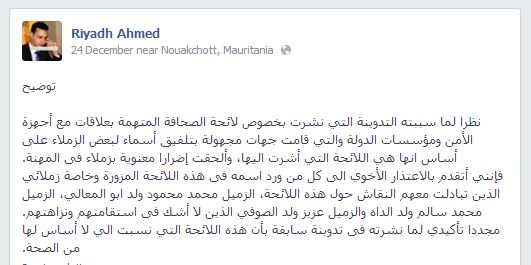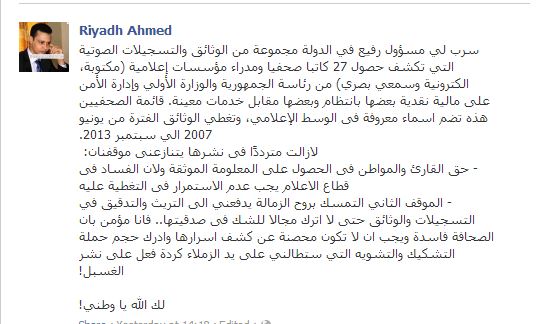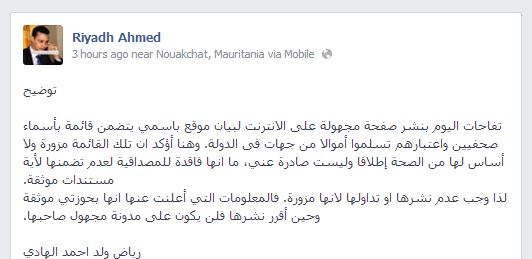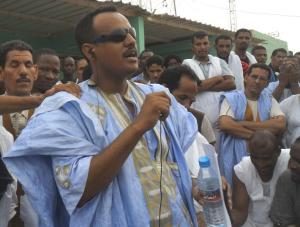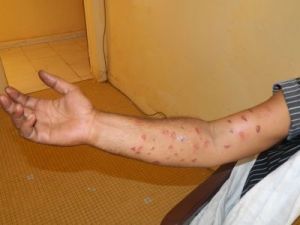Shameful waste! “Consultancy Project to recruit a Technical Assistant” the grand sum of $250,000 was apparently awarded in 2003 to a contractor, GEOIDD in Tunisia, for this basic recruitment service. But then follow the link from that page, and the project name is listed as Rajasthan, India. Are they just insanely sloppy or cooking the books?

Now it’s Mauritania

and now it’s Rajasthan
Here is another – a “study” worth $246,000 awarded to a company “TANSITEC” in Switzerland, which also links to Rajasthan, not Mauritania.
Almost half a million dollars on two items, and what is there to show for it?
Even a cursory examination of the “consultancy” and “study” and “audit” costs, over the life of this 11 year development programme, will show money being squandered on costly but nonsensical projects like the ones above, with little or no immediately apparent or tangible benefits. This programme began before General Aziz staged his military coup in 2008, continuing after he came to power, and it indicates widespread mismanagement and/or corruption on an international scale.
Just one example of a questionable Mauritanian infrastructure and development project was for urban development in Atar, where Mauritanian company Macoba TP (part of the AZIZI group) and Spanish construction company Franjuan were appointed to work with local contractors. Seven local firms were reportedly involved, and they engaged 100 labourers – including some from Mali – to install 46,600 square meters of paving covering 4km of drainage pipes and gutters. The news item posted 7 October 2011 about this project on cridem.org has “vanished” (still visible via the Internet Archive here). Mention of labour from Mali is a big clue for the story disappearing – this project was supposed to create work for Mauritanians, not Malians.
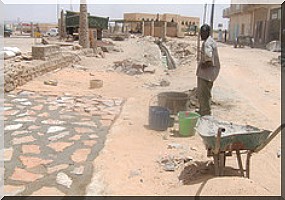
Don’t mention the workers from Mali
Also missing is the World Bank website page about the contract which went to Macoba-Franjuan (still visible on a Chinese site that published a copy, here). The decision to remove evidence of this project may indicate that World Bank prefers not to have anyone look too closely at the bid and tender process for standards compliance. We can be sure that China would be more than interested, since they bid on many construction projects in Mauritania.
Some of the images from the October news item are missing but you can see some photos on the Adrar info site here, from January 2012, when the mayor was chuffed with himself about how well the project was going, and here in August the same year, when several snags and unfinished areas were highlighted.
This paving project was part of a larger, long-term, Urban Development Programme with a total budget of almost US$100 million funded by various international organizations via the World Bank . The project closed 30 June 2012, and the details page and reports are available here in English. The stats, such as exist, are baffling. Atar is the regional capital of the state of Adrar and boasts a population of more than 24,000, who celebrated completion of the drainage project on 28 June 2012. This begs the question why there is such a small increase reported (8,305 – from 17,000 in 2011 to 25,305 in 2012) in the number of people, in all urban capitals across the country, provided with improved drainage services.

Woman from the Leimghetty neighbourhood of Dar Naim near Nouakchott shows her legal title to build on the land where the state just destroyed her home and is now ignoring demands for re-housing or compensation
My current theory is this: they don’t care about the numbers, or where the money seems to be going, or even whether some of the projects are imaginary, because the purpose of the entire shambolic scam is to line the pockets of corrupt officials whose companies, and those of their cronies, profit from contracts to undertake the various “improvements”. This buys the required mix of compliance and silence so that, once real estate prices have been boosted by roads, drainage, etc, even more financial shenanigans can take place, as the already wealthy endlessly shuffle their ill-gotten gains around.
I further assume this is the reason for evicting tens of thousands of the poorest people in Mauritania from their hovels. In a recent example, dozens of families in Leimghetty [ar] have been left homeless for over a month after the national guard sent in bulldozers to destroy their huts – over their heads in some cases. All this happened even as the government was issuing advice to citizens to “stay indoors” during the hottest parts of the day, as temperatures soared to 50 degrees Celsius. The homeless families have been completely ignored by officials from the interior ministry, who are under orders to clear the land and to hell with the people, even the most vulnerable such as the elderly, infirm, and mothers with babies, who are slowly being grilled into oblivion under the scorching sun. Don’t think for one moment that the World Bank is not aware of this. They are aware and they do not care. In fact, they want these slums demolished, and they note that :
“The amount paid by low-income people to have access to land property rights is very low as compared to the existing land market value. Depending on local conditions, additional arrangements needs to be put in place to ensure that only targeted people are benefitting from such programs, and will keep this benefit.”
No doubt they are looking forward to a property price boom.

